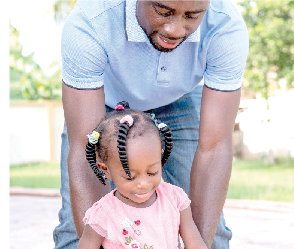Why milestone ‘fear of missing out’ is at all-time high

Have you felt a tightening knot in your stomach as you browse through social media, scrolling through eye-catching photos and videos of children, your child’s age mate constructing whole sentences while yours struggles with a simple ‘hi’?
Well, that nagging realisation that other children are hitting their milestones or have developed certain skills and abilities way earlier than your child is such common fear that therapists call this social media pressure “motherhood milestone FOMO” (an acronym for fear of missing out).
“The wake of social media platforms such as Facebook, Instagram, and Twitter have made it easier for people to share their experiences and milestones with their friends and followers. This has led to a culture of constant sharing and comparison, where people feel pressured to live up to the expectations set by their peers and the idealised versions of themselves portrayed online,” explains Ken Munyua a psychologist.
Comparison is a common challenge many people face in different aspects of their lives but, for mothers, societal expectations about what makes a “good mother” can make this even more difficult.
For instance, Lorah Sompet, a mother, explains that on many occasions, she found herself comparing her nine-month old baby’s development milestones to those of babies postes on social media.
Comparison game
“Although he always hit his milestones way before I could get worried, I always found myself looking through social media to check what baby’s his age were doing and the millstones they had achieved,” she explains.
However, she says that, if in any case his development was slow and that she noticed that he was lagging behind, then she would be worried about his delayed milestone.
“As a mother, I have always found it important to sieve what I consume from social media because I never want to find myself in cases where I have to force my child to do something because another child is doing it. So, I always wait and pray and just hope for everything to be okay,” says Lorah.
It’s not any different for Rachael Ouma, who says that since she gave birth 11 months ago, her Instagram algorithm changed and she found herself consuming more content of children and their milestones.
“When we hit six months and I noticed my child didn’t want to wean, I got so worried, but I decided to take it one step at a time although I often would contact my paediatrician to inquire if we were doing well,” she recalls.
Although she was able to catch up with the delay, she explains that social media largely contributed to the pressure, which she swore never to give into.
Yvonne Nyabondo, a paediatric nurse says for mothers, this pressure can be particularly acute when it comes to milestones related to their children’s development. Seeing other mothers share pictures and stories of their children reaching milestones such as walking, talking, or hitting academic benchmarks can make some mothers feel like they are falling behind or not doing enough for their own children.
In fact, a recent study even confirmed that mums who spend more time online engage in greater levels of social comparison. This can lead to an increase in cortisol levels and in turn, overall higher stress and negative emotions.
“However, it’s important to remember that social media only shows a curated version of people’s lives and experiences, and that what we see online may not always reflect reality. It’s also important to recognise that children develop at different paces, and that comparing them to others can be unhelpful and even harmful,” she explains.
She adds that it is up to each individual to decide how much weight to give to social media and the experiences of others when it comes to their own lives and milestones. It can be helpful to take breaks from social media and focus on your own goals and achievements, rather than constantly comparing yourself to others.
On his part, Munyua says social media often presents a curated and idealised version of other people’s lives, including their children’s achievements and milestones.
“Seeing other children achieving milestones can make parents feel like they are not doing enough for their own children or that their children are behind, he adds.
Coping with FOMO
Munyua says, to cope with milestone FOMO, there are a few strategies that mums can, which include limiting social media use, it can be helpful to limit the amount of time spent on social media to reduce exposure to other people’s curated lives.
Another way of going about this is by reframing the experience, rather than feeling like they are missing out. Mums can try to reframe the experience as an opportunity to celebrate their child’s milestones in their own unique way.
“It could also be important to connect with other mums— talking to mothers who are going through similar experiences can be helpful in reducing feelings of isolation and inadequacy,” he says.
Lastly, he says that it is important to remember that every child develops at their own pace and that comparisons to other children are not always helpful. Celebrating one’s own child’s milestones in a way that feels meaningful and authentic can be a more rewarding experience than trying to keep up with others.












